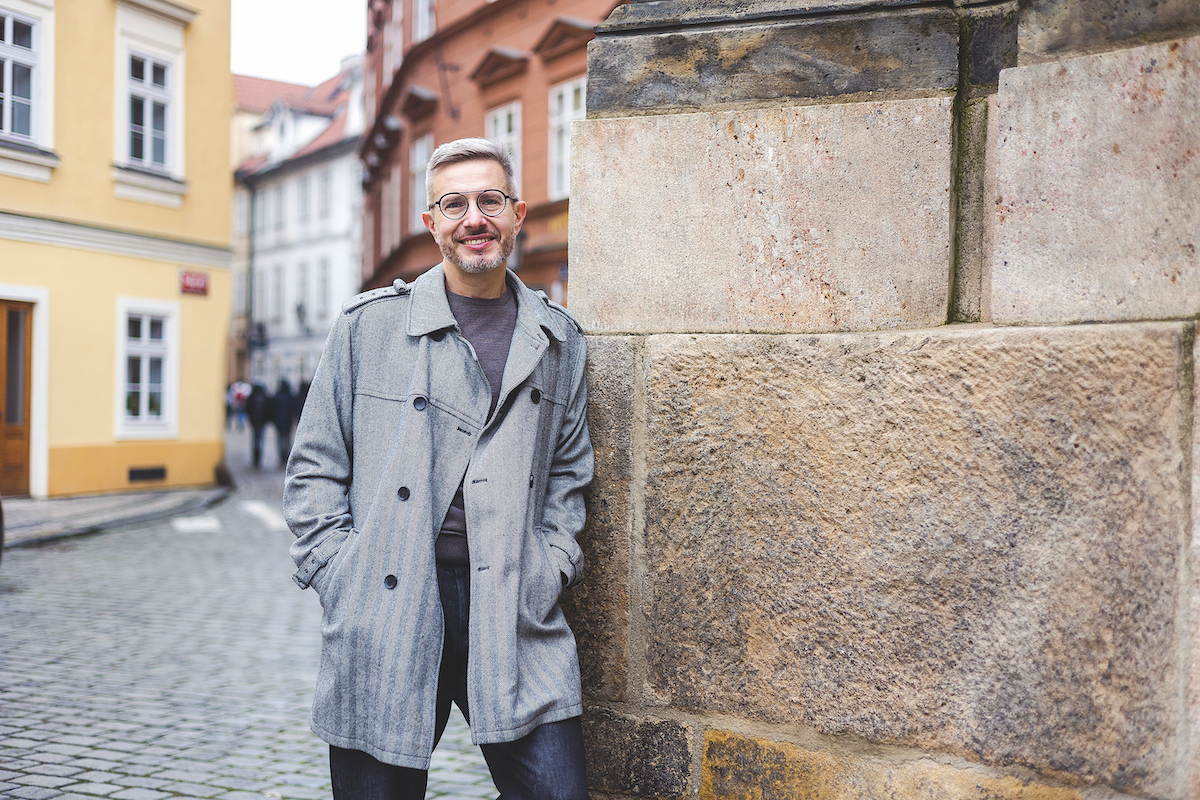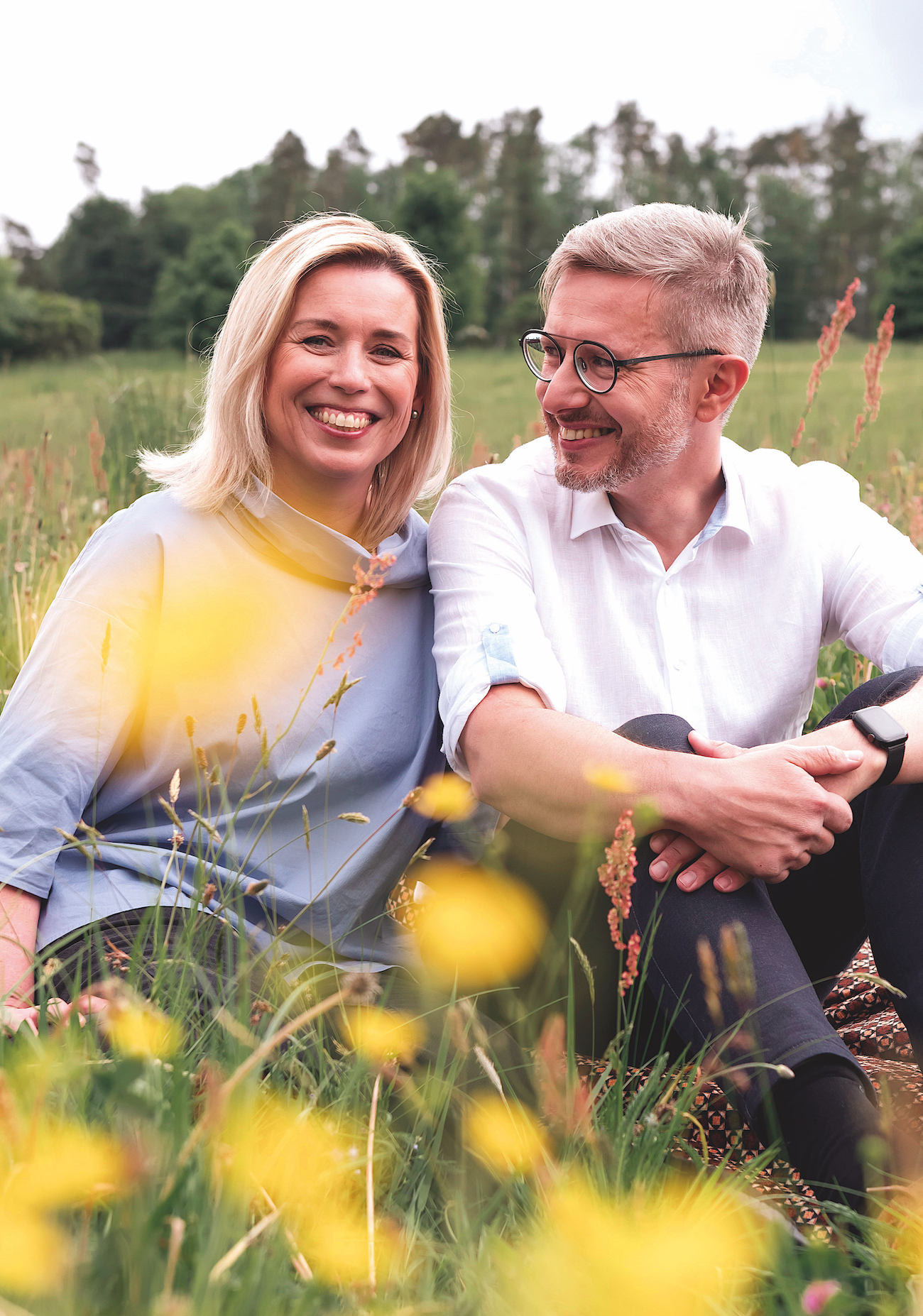“I like the diversity of my job”

Robert Neruda, Partner at Havel & Partners Law Firm
Text: Martina Hošková and M. Zisso; Photo: archive
Many people in the Czech Republic learnt about Robert Neruda, partner at the biggest law firm in Czechia, during the recent presidential campaign of his wife, Danuše Nerudová. He lives in Brno, appreciates the time spent with his family and friends, and loves the diversity of his current job. What does he see as a great adventure? Does he ever have doubts about the solution he advised his clients? And what kind of work would he like to be doing in future?
Tell us about yourself, please.
My Twitter profile says: Antitrust lawyer, former vice-head of the Czech Competition Authority. I am a co-owner of HAVEL & PARTNERS, the largest law firm in Czechia, and co-founder of the opinion platform Rozumné právo. I live in Brno, and am an enthusiastic fan of Kometa Brno (ice hockey). Morning runner. And most importantly – father of two sons and Danuše Nerudová’s husband.
You were very active in your wife’s presidential campaign. Can you share a few highlights with us?
Quite surprisingly, the campaign brought our family closer together. The last few weeks have been difficult, but recently my wife and I agreed that the good memories outweigh the negatives. It was fantastic to see the hope in the eyes of the people who supported Danuše, the commitment of the volunteers and the whole team who stood by my wife.
I am proud that my wife broke glass ceilings, and opened up topics that were not discussed much until then. When I asked her at the beginning why she wanted to run for the presidency, she told me that she wanted to show others the way – especially young people and women. And she succeeded, I think. That hope has not disappeared, and I believe my wife has not said the last word.
We have a new president now. What do you wish for the Czech Republic in this context?
I wish my country to manage the current turbulent period, preserve democracy, and continue to be a state of the law with robust institutions such as judiciary and media. I wish for the Czech Republic to modernize and be an attractive place for all generations, young and old, to live in. I believe that the new president will contribute to this.
Do you have any feelings of disappointment due to not becoming the “first gentleman” of the Czech Republic?
I was ready to fulfil the role of first gentleman with all seriousness, and with my full commitment. I don’t really feel bad about not becoming one, though. I have a great job and a lot of plans that would have been more difficult to implement if my wife became president.
What made you become a lawyer?
I’d like to dispel the rumour that law school is for those who are bad at math. I was pretty good at it in elementary school, and I even succeeded in the city round of the math competition. However, quite early on, I became interested in politics and public affairs. Shortly after the Velvet Revolution, I entered the then-newly established humanities high school, and studying law seemed like a logical path. Perhaps the fact that my father also studied law – but via distance learning, and had never practised law professionally – also played a role.
Does your job fit your lifestyle?
It has differed at different times. It is different, depending on whether you’re a civil servant, deputy assistant judge, paralegal, attorney, or a partner in a law firm. What I like about my current job is its diversity: I enjoy advising clients, working with my team, meeting interesting people, and being inspired by them. I also enjoy business development and marketing, both local and international. I have found that I don’t really enjoy monotonous work – and that’s not really what being a partner in a big law firm is about. It’s good that I can organize my work so that I have space for my family, friends, and my hobbies.
What do you do in your free time?
I try to spend my free time with my family. But I also run every morning, and, in the summer, I ride my road bike quite a lot. My wife and I like to watch good movies and TV shows, such as Yellowstone, Fauda, and Borgen. I go to watch ice hockey regularly, either with my dad or with my younger son. I also bake bread every weekend.
What is the best adventure you have ever had?
Any travel with my family is great fun. I love it when we get to know new places, local people, customs, and cuisine. Last year, we travelled through the west of the USA, and in February we explored Oman. I like to take several day trips with friends, either on road bikes or on foot with a backpack, but always in the mountains.
What is the weirdest thing you have dealt with?
Things aren’t usually weird. Some people are weird.
Can you give a piece of advice to the next generation of lawyers?
I would advise them to be curious, attend the lectures at university, and also be interested in fields other than law – it could be economics, mathematics, politics, computer science, literature, or marketing, just anything. The future is in a combination of disciplines, I believe. And I would encourage them to do a little bit more than their peers are doing. That, in my opinion, is the path to success in law.
What is the most difficult part of being a lawyer?
That responsibility. As a lawyer, you have a great responsibility because wrong advice can lead to great damage. It used to weigh on me a lot to have doubts about the right solution. Today, I consider doubt an important part of my job. In fact, lawyers who have no doubts scare me.

Robert Neruda with his wife Danuše Nerudová
You are an expert at competition law. In your opinion, are we still paying higher prices than other EU countries due to the lack of competition?
I don’t think it’s possible to draw such blanket conclusions. Some things are more expensive here than abroad, while other products or services are cheaper. The price level is influenced by several factors, and taxation and inflation also play a role.
The level of competition has an impact, of course. For a long time it has been the case that in medium-sized countries like the Czech Republic competition cannot be as intense as in the case of large countries such as France, the UK, and Germany. While this may still be true for some services that are linked to a specific location, in the case of most products competition is essentially pan-European thanks to the Internet. There is nothing stopping me from buying a T-shirt or laptop abroad, and this logically leads to price equalization.
What do you think about the state of democracy in Israel? Will it become like Poland or Hungary?
I am not an expert on the situation in Israel. Although I admire the country and its people for many reasons, I do not have enough information to make such a fundamental judgment. It seems to me that the specifics of the legal system there play an important role, especially the fact that Israel does not have a constitution, and how important the role of the Supreme Court is. I understand that the court has more power than is common in Europe and that some politicians there are not happy about it. I do not dare to judge whether any reform is necessary – however, it is obvious that the ongoing one has not been well explained to the people and that they are quite understandably afraid of what it will lead to.
Where do you see yourself in a few years? Being a judge? Or the head of the Office for the Protection of Competition?
Even in a few years, I would like to do work that is meaningful and that I enjoy. Even in a few years, I would like to work with young people and help them grow. If my health serves me, I hope to continue to be a partner in our law firm, because that work fulfils all of these criteria. On the other hand, I try to be humble, and will strive to do well in whatever role life throws at me.

